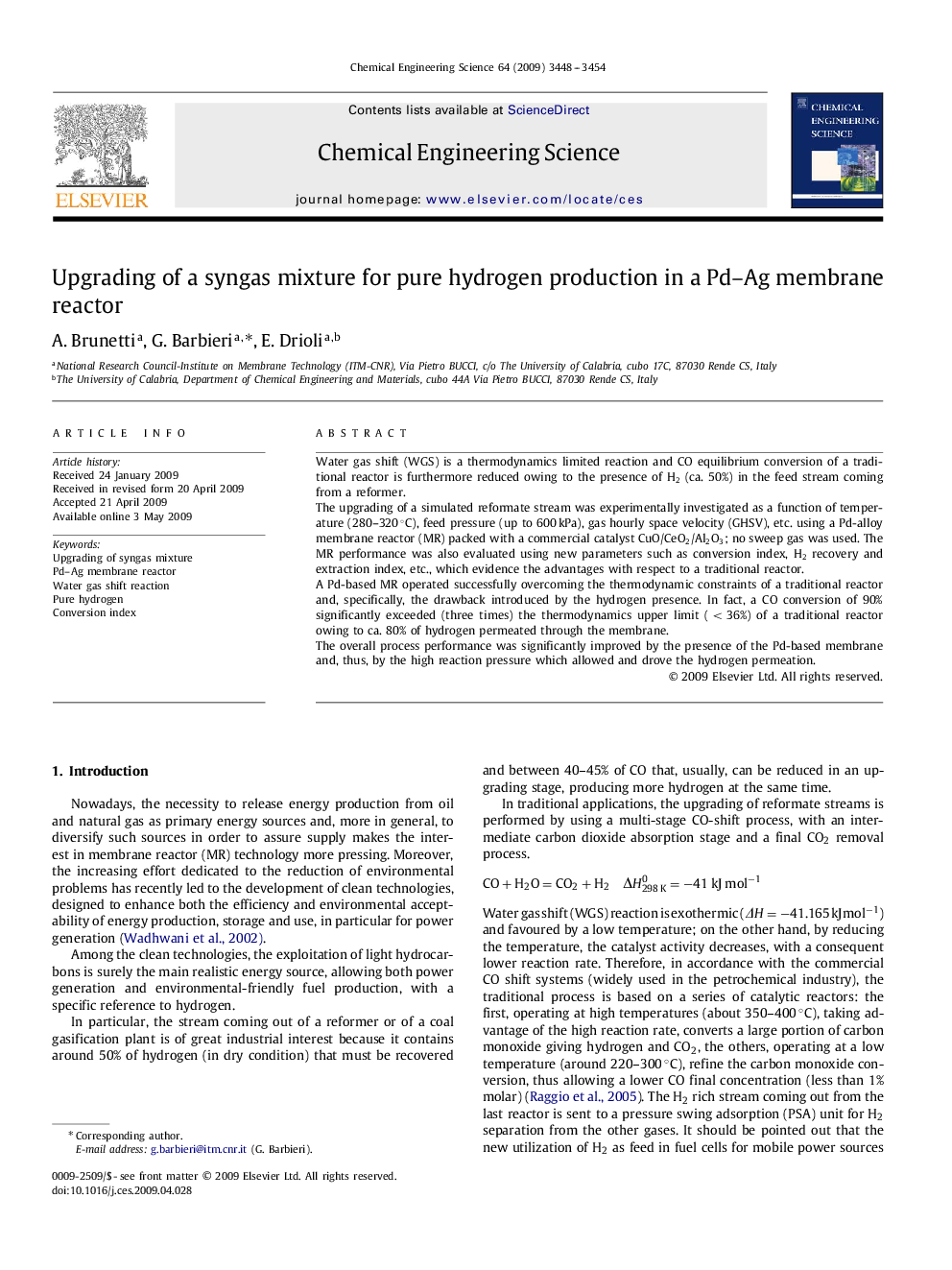| Article ID | Journal | Published Year | Pages | File Type |
|---|---|---|---|---|
| 157977 | Chemical Engineering Science | 2009 | 7 Pages |
Water gas shift (WGS) is a thermodynamics limited reaction and CO equilibrium conversion of a traditional reactor is furthermore reduced owing to the presence of H2 (ca. 50%) in the feed stream coming from a reformer.The upgrading of a simulated reformate stream was experimentally investigated as a function of temperature (280–320 °C), feed pressure (up to 600 kPa), gas hourly space velocity (GHSV), etc. using a Pd-alloy membrane reactor (MR) packed with a commercial catalyst CuO/CeO2/Al2O3; no sweep gas was used. The MR performance was also evaluated using new parameters such as conversion index, H2 recovery and extraction index, etc., which evidence the advantages with respect to a traditional reactor.A Pd-based MR operated successfully overcoming the thermodynamic constraints of a traditional reactor and, specifically, the drawback introduced by the hydrogen presence. In fact, a CO conversion of 90% significantly exceeded (three times) the thermodynamics upper limit (<36%) of a traditional reactor owing to ca. 80% of hydrogen permeated through the membrane.The overall process performance was significantly improved by the presence of the Pd-based membrane and, thus, by the high reaction pressure which allowed and drove the hydrogen permeation.
